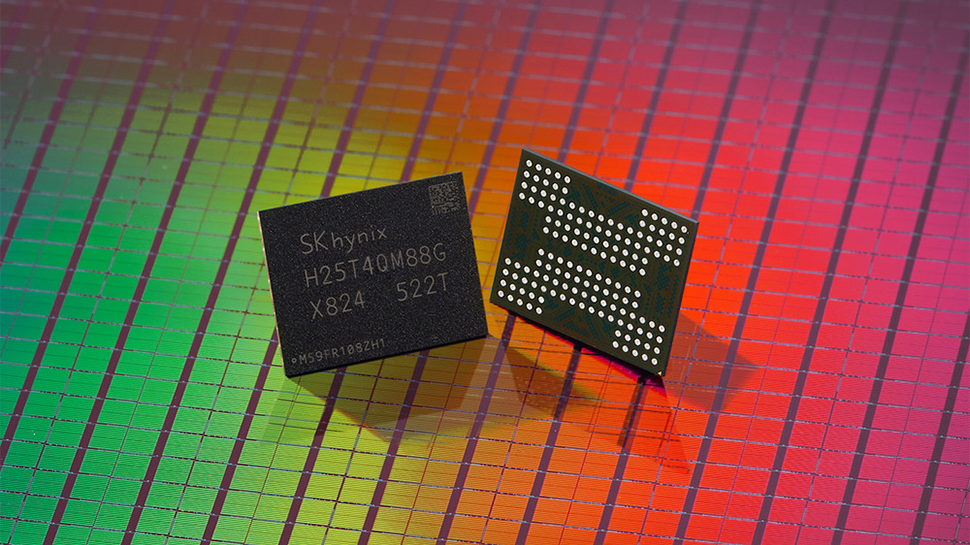A win for consumers? SK Hynix confirms it will bring industry's first 300+ layer QLC NAND to PCs first before moving to enterprise - but don't expect cheap 8TB SSDs anytime soon
Data transfer speeds are twice as fast as previous QLC offerings

Sign up for breaking news, reviews, opinion, top tech deals, and more.
You are now subscribed
Your newsletter sign-up was successful
- SK Hynix sets new milestone with 321-layer QLC NAND for PC SSDs
- Performance and efficiency improvements come before enterprise and AI server rollout
- Consumers unlikely to see cheap high-capacity SSDs until costs fall further
SK Hynix has confirmed it has started mass production of its new 321-layer QLC NAND flash memory, making it the first in the industry to cross the 300-layer threshold with QLC technology.
The company completed development of the chip earlier in 2025, and says it plans to launch commercial products in the first half of 2026, once customer validation is finished.
The chip features 2Tb capacity per die, double that of previous solutions.
Power efficiency improvements
To address the slower performance that often comes with higher-density QLC NAND, SK Hynix expanded the number of planes within the chip from four to six.
This change allows for greater parallel processing, which improves read and write speeds while keeping power use low.
The company says its data transfer speeds are twice as fast compared to its prior QLC offerings, with write speeds up to 56% faster and read performance improved by 18 percent.
Power efficiency during write operations is also up by more than 23%, something that will matter in large data environments where energy costs are closely monitored.
Sign up to the TechRadar Pro newsletter to get all the top news, opinion, features and guidance your business needs to succeed!
Although the long-term aim is to use the technology in enterprise SSDs for data centers and ultra-high-capacity storage aimed at AI servers, the company says PC SSDs will be the first products to ship with the 321-layer chips.
That means consumers may see benefits before enterprise customers, although the initial focus will not necessarily be on low-cost, high-capacity drives.
"With the start of mass production, we have significantly strengthened our high-capacity product portfolio and secured cost competitiveness," said Jeong Woopyo, Head of NAND Development.
"We will make a major leap forward as a full-stack AI memory provider, in line with the explosive growth in AI demand and high-performance requirements in the data center market."
SK Hynix also plans to use its stacking technology, which allows up to 32 dies in one package, in future ultra-capacity solutions. It expects this to be especially important in AI-driven storage markets where both density and efficiency are key selling points.
While the arrival of this NAND marks a big step toward larger, more affordable storage, it is unlikely that cheap 8TB consumer SSDs will arrive any time soon, due to high manufacturing costs, packaging complexity, and validation cycles.
You might also like
- These are the fastest SSDs you can buy right now
- And these are largest SSDs and HDDs you might want to consider
- Here’s the chip that could make 100TB SSDs mainstream soon

Wayne Williams is a freelancer writing news for TechRadar Pro. He has been writing about computers, technology, and the web for 30 years. In that time he wrote for most of the UK’s PC magazines, and launched, edited and published a number of them too.
You must confirm your public display name before commenting
Please logout and then login again, you will then be prompted to enter your display name.